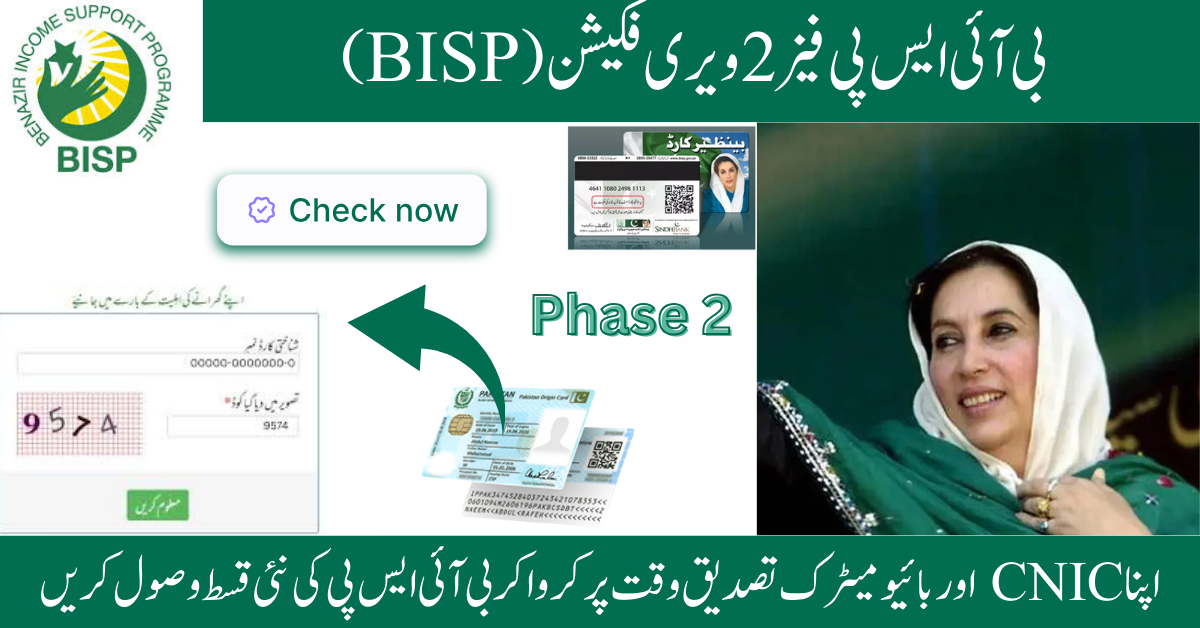A Bold Path to Secure Homes. Owning a home is not only about bricks and mortar—it represents dignity, security, and peace of mind. This is the vision behind the apni zameen apna ghar program punjab, a provincial initiative aimed at regularizing land, providing affordable housing, and supporting low- and middle-income families. The program is designed to give thousands of households a chance to transition from informal living to secure homeownership.
Apni zameen apna ghar program punjab
| Item | Details |
|---|---|
| Program name | apni zameen apna ghar program punjab |
| Core aim | Grant secure land tenure and provide affordable housing/serviced plots |
| Target group | Low- to middle-income families, renters, and long-term residents of informal settlements |
| Benefits | Ownership titles, affordable housing units, serviced plots, incremental building support |
| Implementing bodies | Housing & Urban Development, PHATA, development authorities, district administrations |
| How to apply | e-Khidmat Markaz, provincial housing portals, notified district offices |
| Costs | Subsidized pricing, installment plans (vary by site and unit size) |
| Selection process | Eligibility checks, document verification, balloting/merit-based allocation |
| Status & timeline | Phased roll-out with district-wise announcements |
| Priority groups | Families without homes, women-headed households, persons with disabilities |
What is the apni zameen apna ghar program punjab?
This program is a people-first housing and land-rights initiative aimed at transforming uncertain and insecure living conditions into legal and affordable homeownership. Punjab faces a significant housing shortage, with millions of units still required to meet demand. By regularizing katchi abadis, the program gives families security of tenure, which can completely change their lives. It also ensures affordability through subsidies and installment options, preventing financial pressure on households.
Why it matters
The importance of this program lies in the opportunities it creates for families. Having a legal title gives households protection from eviction and provides them the ability to plan for the future. With proper ownership, families can access credit facilities, improve their living conditions, and invest confidently in their homes. Moreover, improved sanitation, safer housing structures, and formal addresses bring dignity and stability to daily life.
What’s typically offered
Beneficiaries of this initiative may receive different forms of assistance depending on the site and their eligibility. Some families are granted ownership titles for plots they already occupy in regularized settlements, while others may be offered low-cost apartments or houses in newly planned schemes. In certain cases, families are provided with serviced plots that include basic utilities, allowing them to build their homes gradually. Support for incremental improvements is also included, recognizing that many households build in stages as resources allow.
Who qualifies? Eligibility in plain language
To qualify for the program, applicants must be residents of Punjab with a valid CNIC and should not already own a house or residential plot in their name within the province. Household income must fall within the defined affordable housing limits. For those applying under settlement regularization, applicants must prove long-term residence in the area through surveys or verified records.
Priority is given to families who do not own any home or plot, women-headed households, persons with disabilities, and long-term residents of identified settlements with low or limited income.
Documents you’ll likely need
Applicants are required to provide basic identification and verification papers. These include CNIC and family registration details, proof of residence such as a utility bill or rental receipt, and income proof through salary slips, employer letters, or verified self-declarations. An affidavit confirming no prior ownership may also be required. Additionally, survey slips or tokens issued by local authorities during enumeration may need to be presented.
How to apply for apni zameen apna ghar program punjab
The application process has been kept simple and transparent so that families can easily access it. Residents can apply through e-Khidmat Markaz in their districts, official housing portals, or notified district offices. Special facilitation camps are sometimes arranged in targeted settlements.
The step-by-step process involves checking site availability in your district, collecting the necessary documents, filling out the application form carefully, and submitting it to receive an acknowledgment receipt or tracking number. After submission, applicants must respond promptly to verification calls or field visits. If the number of applicants exceeds the available housing units, balloting is conducted, and results are announced through official channels. Those who are shortlisted are required to complete installment arrangements and finalize the legal paperwork within given deadlines.
Applicants are advised to keep copies of all documents, avoid unauthorized agents, and always use official platforms. For those unable to apply in person, a trusted family member with written authorization can submit the application.
Costs, subsidies, and how payments typically work
Affordability is central to this program. While costs differ depending on the city, location, and unit type, the government offers subsidized land pricing and smaller upfront payments compared to market rates. Installment plans allow payments to be spread over several years, and in many cases, certain development charges are waived or reduced. Priority is often given to smaller, low-cost units to accommodate families with limited income.
Successful applicants are required to make payments only through official bank challans or designated partner institutions, and every receipt must be kept safe. Cash payments to individuals should never be made. In case of financial hardship, beneficiaries may request deferments or restructuring, depending on policy provisions.
Real stories, real impact
The power of this program can be understood through stories like that of Amina from Lahore. For years, she lived in a settlement without any legal title to her home. After her family qualified for regularization, she was granted ownership rights. With her title, she was able to secure a microfinance loan, improve her home with a safer roof and sanitation facilities, and provide her children with a formal address that removed barriers in schools and government services. This illustrates how secure tenure builds confidence and creates lasting opportunities.
Who’s behind it?
The program is closely aligned with the governance agenda of Punjab for 2024–2025, emphasizing transparency, social welfare, and dignified housing. Chief Minister Maryam Nawaz has made people-centered services a key priority, ensuring that projects like this reach the intended beneficiaries. Implementation is carried out by PHATA, local development authorities, and district administrations, with an emphasis on fair balloting, clear eligibility rules, and phased rollouts.
How apni zameen apna ghar program punjab compares to other initiatives
Compared to other housing schemes, this initiative stands out for its structured and citizen-friendly approach. While federal projects such as Naya Pakistan or Mera Pakistan Housing focused on financing and large-scale housing construction, this program is rooted in provincial execution with a focus on land rights and affordability. Shelter homes or Panahgahs provide temporary relief, whereas this initiative aims for permanent ownership. Municipal efforts in the past lacked structure and technology, but this program makes use of digital systems and transparent processes.
Challenges to watch—and how they’re being handled
Large-scale housing programs always face challenges. Limited land availability in urban centers, high infrastructure costs, and the overwhelming demand compared to supply are common issues. To address these, the program employs phased development, transparent balloting, and third-party audits. Digital portals and e-Khidmat centers are used to cut red tape, while periodic public updates increase accountability.
Staying safe from scams
Applicants must remain cautious. Only official channels such as e-Khidmat Markaz and provincial portals should be trusted. Individuals on social media claiming to process applications are often fraudulent. Payments should only be made through official bank challans, and suspicious activity should be reported to local administrations immediately.
How to keep up with updates
Staying informed is essential. Residents can regularly visit their district’s e-Khidmat Markaz, check official Punjab government websites, follow verified social media accounts, or monitor notices at union council offices. Being updated ensures timely applications and prevents missed deadlines.
FAQs about apni zameen apna ghar program punjab
Q1. What is the purpose of this program?
It provides legal land titles and affordable housing to low- and middle-income families across Punjab.
Q2. Can I apply if I already own property?
No, priority is given to those without any home or plot ownership in Punjab.
Q3. How do I apply?
Applications can be submitted through e-Khidmat centers, official housing portals, or district offices with all required documents.
Q4. What documents are necessary?
You need CNIC, proof of income, proof of residence, and in some cases, survey slips or tokens from local authorities.
Q5. How much down payment is required?
Down payments are smaller than market rates, with the rest payable through easy installments.
Q6. How is the selection made?
Through eligibility checks and transparent balloting.
Q7. Can overseas Pakistanis apply?
Yes, if they are Punjab residents and meet the criteria, but verification may require personal presence or an authorized family member.
Q8. Is this a federal or provincial program?
It is a provincial initiative, separate from federal housing programs.
Q9. When will possession be given?
Possession timelines depend on the development progress of each site.
Q10. Where can I get guidance?
The nearest e-Khidmat Markaz is the most reliable source of assistance.
Conclusion
The apni zameen apna ghar program punjab is not just another housing scheme—it is a ray of hope for thousands of families. By offering land rights, affordability, and dignity, it paves the way for a more secure future. Applicants should apply with confidence, use only official channels, and carefully document each step of the process. For families who have lived in uncertainty for decades, this program represents the long-awaited chance to finally call a place their own.


















